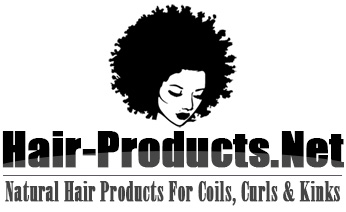4C Hair Product Categories
If you are looking for natural hair products, we hope you like our selection of all-natural hair products for African American hair. We offer some of the best shampoos and conditioners for natural hair and brands internationally recognized as ideal for black women who want to maintain their natural hair healthily. Today there are a lot of natural hair products, but as you may have experienced, not all of them work on all hair types. We focus our product range on the type 4 hair textures as the hair types in this group are the most difficult to manage and maintain in a healthy way. We carry shampoos for all hair types; dry hair, damaged hair, and transitioning hair; we have a wide variety; all of them sulfate-free. Conditioners for black women with natural hair are also a key concern that we will try to address here as well by providing a range for all types. It takes more than just shampoo and conditioner to maintain African American hair. Our full list of categories on the website is shown below. Simply click to view our products and find out more information on them.
The Major Benefits of Sulfate-Free Shampoo
Shampoos that are free of Sodium Laureth Sulfate reduce irritation of your scalp. Using products that irritate or inflame your scalp will prevent you from enjoying healthy growing hair. Sulfate-Free Shampoos increases the ability for your hair to retain moisture so you don’t have to deal with dried out hair after it’s been washed. The hair is better able to retain its natural oils, thus helping to keep it moisturized and healthy looking, which in turn prevents itchy scalp. Additionally, it has been found that shampoos that contain the sulfate chemical are harmful as it can eventually get absorbed by the liver as this is not good.
Deep Conditioning and Moisturizing
A deep conditioner should fortify the hair with moisture and protein. As hair ages it will begin to feel dry and brittle and if we aren’t using the right shampoo and taking proper care they can eventually split and break. When this happens (or even before) it means that we should treat our hair to a deep conditioning. Usually, if it is not too late this treatment can remedy to problem. I know of some people who include deep conditioning as part of their regular hair regime. It is better to prevent the damage than to neglect the hair and deal with trying to restore it. Deep conditioners have different functions, and they are identified by their name – treatment, masque, hydrating, strengthening, restorative, etc. Moisturizing is very important to coily, curly & kinky hair. A form of conditioner itself, this helps to keep the hair softer, looking more nourished and more manageable.
Natural Hair Oils and their Benefits
Oils are a must have; be certain to add it to your regiment. Natural oils are great and healthy for our hair. As with shampoos and conditioners there are several to choose from so you are bound to find a few that work for you. There are lots of natural hair blog and videos that explains which oil works best for which purpose. If you have just begun your natural hair journey we encourage you to take the time to watch as many videos as you can. You should also read as many blogs as you can, because, trust me, you can become overwhelmed. You can find oils for hair growth, to prevent dandruff, to strengthen the shaft, to prevent frizz, the help seal in moisture, to reduce damage and spit ends. Any oil you choose will be beneficial to your hair in some way. Just chose what’s available to you and within your budget. A few of the most popular ones are Coconut Oil, Castor Oil, Olive Oil, Jojoba Oil, Grapeseed Oil, Avocado Oil, and Sweet Almond Oil. Everyone has their favorites and after some time, you will find yours too.
How to Care for your Natural Hair
If you are new, you may not know who to care for your natural 4C hair in the proper way to ensure that it stays healthy and beautiful. It is important that you create a regimen, even if it is just a simple one – shampooing, conditioning, moisturizing, detangling and using protective styles. As a rule you should wash and cleanse your hair and scalp at least once every week using a sulfate-free shampoo or you can co-wash (this is washing with conditioner only). After shampooing (even when you co-wash) you should apply conditioner to your hair. This helps to strengthen your hair and retain the moisture. You should also try to deep condition the hair at least once every month. Again, this is a basic routine; you can do it at shorter intervals. After you shampoo and condition, you should moisturize your hair. Apply the product to all your hair particularly to the ends as they are the oldest and weakest and therefore the easiest to be damaged. Detangling dry hair is difficult; practice doing this on wet hair. Depending on the type of hair you have you might want to use your fingers to detangle after you have added your product; begin at the ends and work up to the roots. Finally manipulating the hair into a protective style (such as braids, flat twists and cornrows) prevents breakage and is considered low maintenance. Some women, like me, prefer to wear our hair out all the time – this is a lot of work. After some time of trying different things, you will find and determine what works best for you.












